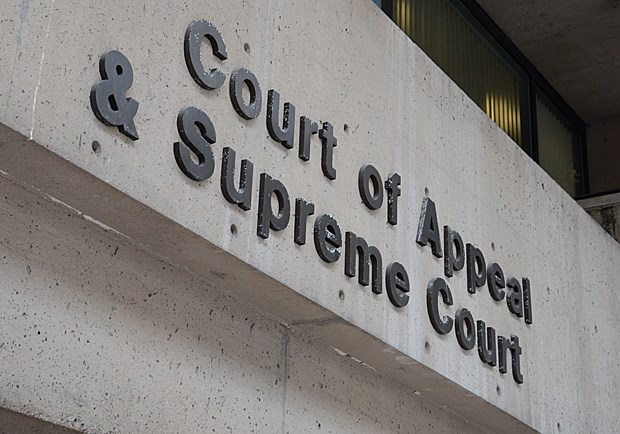The Squamish Nation has launched another lawsuit in an effort to stop Kinder Morgan’s Trans Mountain pipeline, this time targeting the provincial government.
The petition filed in B.C. Supreme Court on April 20 asks for a judicial review of the province’s decision to grant the pipeline an environmental certificate, alleging the province failed in its constitutional duty to consult with the First Nation.
During the National Energy Board hearings in 2016, both Squamish Nation and the province expressed serious concerns about Trans Mountain’s project, particularly around the risk of spills and the capability to respond to spills.
But on Jan. 11 this year Premier Christy Clark and Environment Minister Mary Polak made the announcement the pipeline had been granted an environmental certificate and that it had met the government’s “five conditions” related to spill response, Aboriginal rights and title, and a “fair deal for B.C.”
But there were no meaningful consultations between the province and the Squamish before that decision was made, the suit notes.
“In its closing submissions to the NEB, the province asserted that it was unable to support the project for reasons that include a lack of information on key issues of concern to (the) Squamish and, apparently, the province. Its later approval of the project constituted a substantive change in the province’s position yet the province did not consult with (the) Squamish about the reasons or the basis for this change in position.”
In 2010, the province and the National Energy Board reached an “equivalency agreement” stating that the province would accept the NEB’s environmental assessment for heavy oil projects. But a January 2016 B.C. Supreme Court decision related to Enbridge’s Northern Gateway Project ruled that, even with the agreement in place, the province was still required to consult with the Gitga’at Nation and issued its own environmental certificate.
The Squamish Nation wrote to the province arguing the court decision was equally applicable to the Trans Mountain application but the province rejected the claim.
The Northern Gateway proposal was later formally denied by the federal government and withdrawn by Enbridge.
“We strongly believe that the province has a legal duty to consult us on what new information became available to make it change its position and whether this new information addresses our concerns with the project. We heard nothing from them,” said Squamish Nation Chief Ian Campbell in a release.
The nation has been opposed to the project since early in the process, particularly due to concerns over how a spill would impact their territory. “Squamish has occupied, governed and sustained itself physically, culturally and spiritually since time immemorial from the areas of its territory that may be adversely impacted by the project,” the suit states. “In addition to this being their home, the Squamish rely on their territorial and reserve lands, and the waters and resources adjacent to them, to support their people, culture and way of life, and to practice their Aboriginal rights, including harvesting, cultural, social, ceremonial and governance rights.”
The Squamish Nation has a similar suit filed against the federal government arguing it breached its duty to consult with First Nations. The Tsleil-Waututh has a number of legal actions underway as well.



